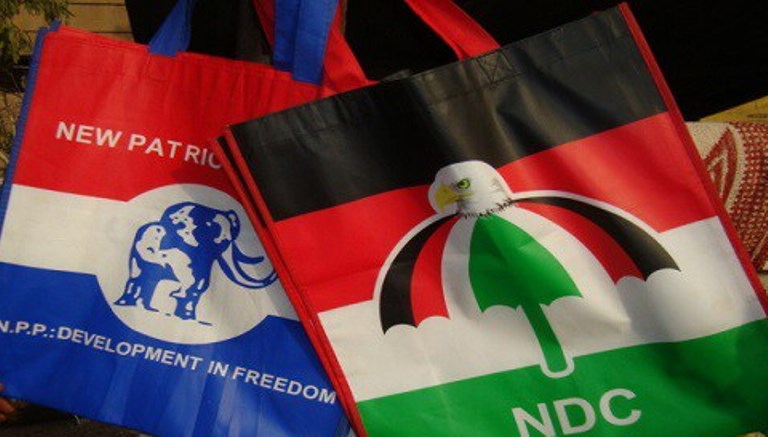The December 2024 Presidential and Parliamentary elections in Ghana are shaping up to be a pivotal contest, particularly in the five Northern regions as to who returns back to the Jubilee House after the tenure of President Akufo-Addo comes to an end.
Historically, the National Democratic Congress (NDC) has dominated these regions, securing the majority of votes in previous elections.
However, the emergence of Vice President Dr. Mahamudu Bawumia as the New Patriotic Party (NPP) Vice Presidential Candidate and subsequently flagbearer has significantly altered the political dynamics, leading to increased electoral gains for the NPP in these regions.
READ ALSO: Bawumia Begins Nationwide Campaign for 2024 Elections today
In the 2020 general elections, the NDC won four out of the five Northern regions, maintaining its traditional stronghold.
Despite this, the NPP saw an appreciable increase in voter performance. The 2024 elections present an intriguing narrative, as both presidential candidates hail from the Northern part of Ghana.
Former President John Dramani Mahama, the NDC flagbearer, is from the Savannah Region, while Vice President Dr. Mahamudu Bawumia, the NPP flagbearer, is from the North East Region. This shared regional origin makes the Northern regions a critical battleground in the upcoming elections.
Political analysts and pollsters have highlighted the significance of the Northern regions in the 2024 elections. The NPP, buoyed by Dr. Bawumia’s candidacy, is confident in its prospects.
Salam Mustapha, the NPP’s National Youth Organizer, has predicted that the party is on track to win 30 out of the 57 seats in the Northern regions, marking a historic shift in political dominance. Mustapha has even declared the presidential election a “forgone conclusion” in favor of the NPP.
In contrast, the NDC has dismissed Mustapha’s assertions, expressing confidence in their ability to strengthen their electoral hold and win the December 7 polls. Former President Mahama launched a campaign tour in these regions, immediately after the Vice President’s extensive tour of the regions, underscoring both candidates’ commitment to securing victory.
A Political Science Lecturer at the University of Education, Winneba, Dr. Abdul Hakim in a recent interview has dissected the electoral dynamics at play in the five Northern regions of Ghana as the country approaches the December 2024 elections.
Dr. Hakim provided an insightful analysis of the personalities, track records, and strategies of former President John Dramani Mahama and Vice President Dr. Mahamudu Bawumia, and how these factors influence voter perceptions in these critical regions.
Dr. Hakim began by highlighting the historical context that cements the Northern regions as strongholds of the National Democratic Congress (NDC).
He noted that during the Fourth Republic transition in 1992, the NDC strategically targeted these regions to counter the dominance of the Ashanti region, which is a stronghold of the New Patriotic Party (NPP).
“The Northern regions are technically, not by accident designed to provide massive electoral support for the NDC during the fourth republican transition in 1992. So, you know, a lot of development happened in the 1980s and to early 1990s in the Northern region, the road network from Accra to Bolgatanga was done by the PND/NDC.
“That was one of the reasons that won the hearts and minds of the voters of these regions, including several other developments in these regions such as the Tamale township roads were done under the PNDC/NDC era” he said.
READ ALSO: Unavoidable Scenes Ahead of 2024 Elections
This historical allegiance, he noted was further strengthened by the inclusion of several Northern elites within the NDC, such as Mahama Iddrisu, the current Chairman of the NDC Council of Elders, and Alhaji Hudu Yahaya, among others, which contrasted with the NPP’s relative lack of Northern representation.
As Ghana approaches the December 2024 elections, the Northern regions will be a battleground for both the NDC and NPP.
Former President John Mahama and Vice President Dr. Mahamudu Bawumia must therefore navigate complex tribal dynamics, address economic challenges, and effectively communicate their policies to secure votes.
Dr. Abdul Hakim’s analysis underscores the importance of strategic engagement and the need for both candidates to rise above temporary fixes and focus on sustainable development to win the hearts and minds of Northern voters.

